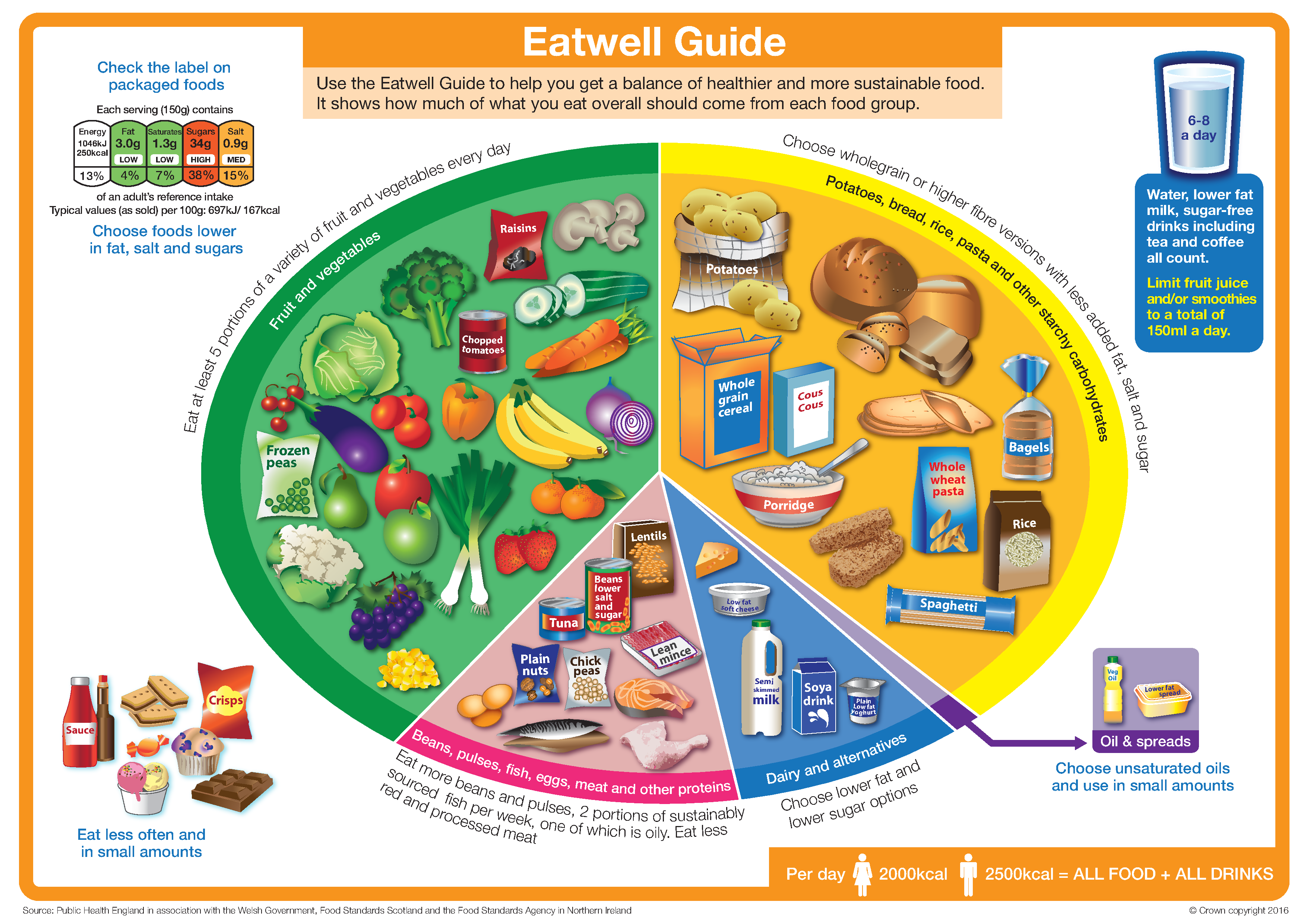Healthy eating: Key messages
- You should eat the right amount of calories for how active you are, so you're balancing the energy you consume with the energy you use. It's recommended that men have around 2,500 calories a day and women should have around 2,000 calories a day, although most adults eat more calories than they actually need
- Your Body Mass Index (BMI) is one way to measure if you're under or over weight and a BMI of 18.5 to 25 is considered to represent a healthy weight. Your waist circumference is another way to measure if there's a risk to your health and a healthy circumference should be less than 80cm for women and 94cm for men
- The NHS Eatwell Guide is a useful resource for helping you to eat more healthily and achieve a balanced diet. To find out more, click on the below image or visit the NHS website
- If someone is trying to lose weight, encourage them to aim for eating less and being more active. If they eat a healthy and balanced diet this will also help, along with cutting down on foods that are high in saturated fat and sugar (biscuits, cakes, crisps, sugary drinks) and eating plenty of fruit and vegetables, which can be fresh, frozen, tinned, dried or juiced. They all count towards your 5 a day and an adult portion of fruit or vegetables is 80g
- Don't forget that alcohol is also high in calories, so cutting down on the amount you drink, can help control a person's weight
- You should base meals around starchy foods, such as bread, rice or potatoes
- It takes time for our brains to register when we’re full, so try to eat more slowly
- Try to encourage people to eat breakfast, even if they’re trying to lose weight. A healthy breakfast in the morning means you're less likely to want to snack before lunch
- Swap eating in front of the TV for the table, because eating when you're distracted means you eat more without event noticing or enjoying it!
- Aim to eat more fish, ideally a portion of oily fish every week
- Try not to eat more than 6g of salt a day (for adults), which is around a teaspoonful
- Don't get thirsty! We need to drink between 6 to 8 glasses of fluid every day to stop us getting dehydrated (this is in addition to the fluid we get from food). We need even more than this when the weather's warm or we're more active
- Try to avoid sugary soft and fizzy drinks, which are high in added sugars and calories and are also bad for our teeth. Even unsweetened fruit juice is high in sugar, so try not to drink more than one glass (about 150ml) a day
Additional information
Take a look at the Talk Community Directory's healthy eating page, where you can also download a copy of the healthy eating / healthy weight leaflet.

